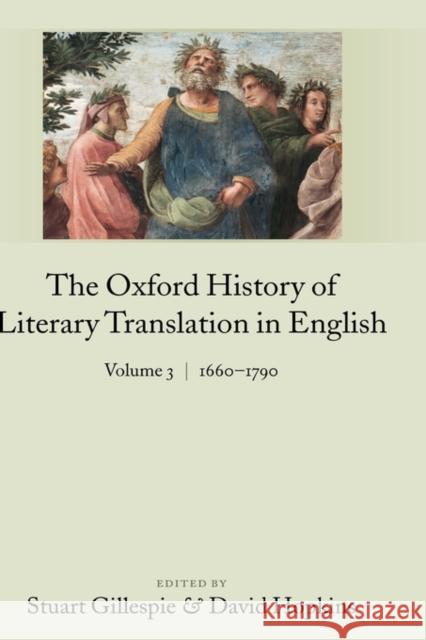The Oxford History of Literary Translation in English: Volume 3: 1660-1790 » książka
The Oxford History of Literary Translation in English: Volume 3: 1660-1790
ISBN-13: 9780199246229 / Angielski / Twarda / 2005 / 584 str.
This groundbreaking five-volume history runs from the Middle Ages to the year 2000. It is a critical history, treating translations wherever appropriate as literary works in their own right, and reveals the vital part played by translators and translation in shaping the literary culture of the English-speaking world, both for writers and readers. It thus offers new and often challenging perspectives on the history of literature in English. As well as examining the translations and their wider impact, it explores the processes by which they came into being and were disseminated, and provides extensive bibliographical and biographical reference material.
Volume 3 of the Oxford History of Literary Translation in English, the first of the five to appear, lies at the chronological center of the History, and explores in full breadth both the rich tradition of translated literature in English, and its centrality to the "native" tradition.
Quite independently of their wider impact, the translations of the age of Dryden and Pope, Behn and Smart, Macpherson and Smollett in themselves command the fullest attention, and Volume 3 explores their intrinsic interest as fully-fledged English literary works. In this period, translation--particularly from Latin, Greek, and French--acts as a constant point of reference and a crucial shaping force in English writing. It is an era in which key literary innovations--the heroic couplet, the sublime, primitivism--are fostered, and sometimes directly occasioned, by translation as a discipline and by translations as models. This volume also attends, therefore, to the influence of translation on forms and styles used in the wider literary arena, and its contribution to conceptions of the English literary canon (for which this period was formative).
Volume 3 draws on the work of thirty-two contributors from six countries in order to deal adequately with the prolific and diffuse nature of the translation phenomenon in the 1660-1790 period, and the challenge it presents to literary scholarship as traditionally organized. To the audience it will find among scholars of English Literature and elsewhere, this complete version of a story hitherto told only piecemeal will be a revelation. This volume proposes a map of the period completely different from those drawn in other modern literary histories, a map in which boundaries between "original" and translated work in publishers' output, in readers' experience, in writers' oeuvres, and in the English literary achievement as a whole are redrawn--or erased--at a stroke. What is more, it demonstrates that such a view of English literature was predominant within the period itself.











